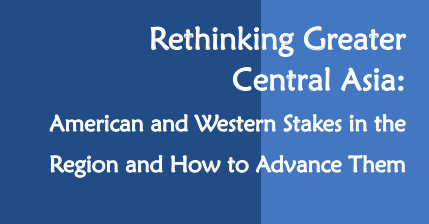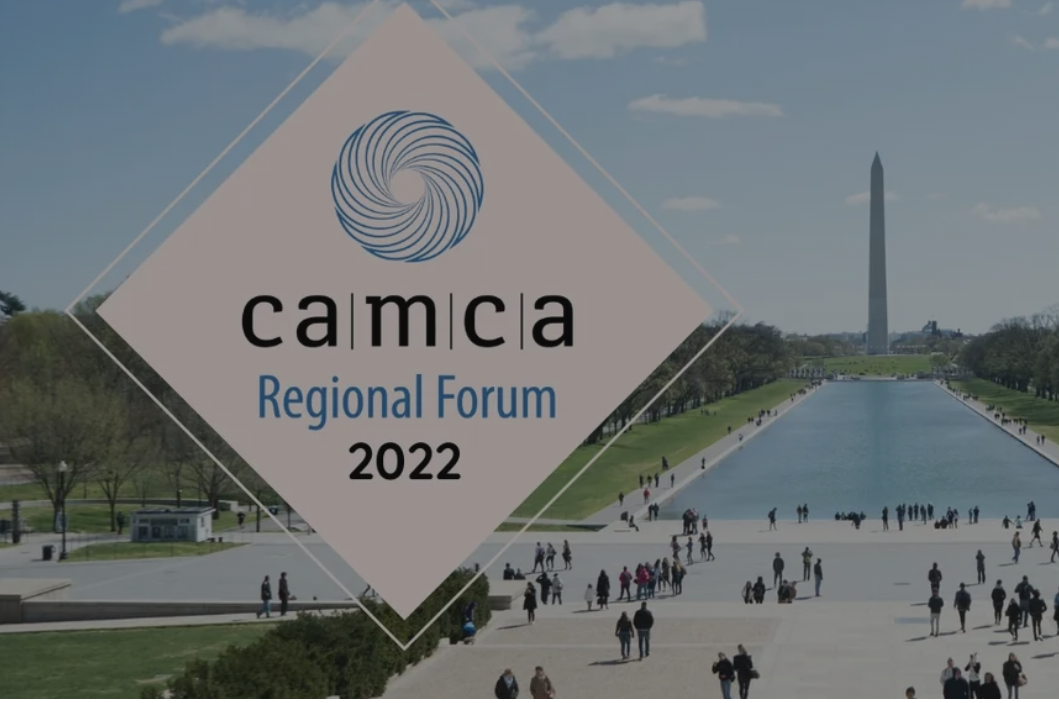In-Person Meeting: CAMCA: A New Era

In-Person Meeting
Co-organized by the CAMCA Forum founders:
The Central Asia-Caucasus Institute at AFPC
The CAMCA Network
The Rumsfeld Foundation
Forum on CAMCA: A New Era
Join the fall 2022 Rumsfled Foundation Central Asia, Mongolia, the Caucasus and Afghanistan (CAMCA) fellows for a presentation on the region's next chapter. From it's geostrategic location to its large and viable workforce, CAMCA countries have the potential to create a shared economic system supporting regional trade investments, labor and peacekeeping, Join the Fellows to learn how the U.S. can better interact with, and invest in, this rapidly developing region.
When: Wednesday November 9, 3:00 - 4:30 PM EST
Where: American Foreign Policy Council, 509 C Street, NE, Washington, DC 20002
Moderator: Svante Cornell, Director, Central Asia-Caucasus Institute at American Foreign Policy Council
Rethinking Greater Central Asia: American and Western Stakes in the Region and How to Advance Them

Register for the June 15-16, 2022 CAMCA Forum!

Join us June 15-16 for the 2022 CAMCA Regional Forum!
THEME: "New Geopolitics and Geoeconomics in CAMCA"
SESSION TOPICS
- CAMCA Geopolitics after Ukraine: What’s Desirable? What’s Possible?
- How to Deal with Echo-sanctions in CAMCA
- Building Modern Skills in CAMCA Countries
- Securing CAMCA’s Digital Future in an Era of U.S.-China Geo-Tech Rivalry
- Trade and Transport in CAMCA: Regional and Global Connectivity
- What’s Next in Afghanistan?
- Prospects of Regional Financial Structures in CAMCA
- Women Taking Power in CAMCA: Prospects and Barriers
- Food Security and Building Agritech in CAMCA
- Meet the New Entrepreneurs of CAMCA
- Accelerating Regional Cooperation in Policy Analysis: A Roadmap
- Investing in CAMCA: How to Seize Opportunities
Forum speakers represent a wide variety of sectors and expertise across the CAMCA region and beyond...
Below is a sample of the international and U.S.-based organizations and businesses that confirmed speakers
- Central Asia-Caucasus Institute
- American University of Afghanistan
- National Development Agency of Mongolia
- Chemonics International Inc.
- Cintana Education
- Education Committee of the Georgian Parliament
- Special Inspector General for Afghanistan Reconstruction
- UNDP Kyrgyzstan
- Hudson Institute
- Batumi Multimodal Terminal
- Free Democrats Party of Georgia
- T-Cell Tajikistan
- White & Case LLP
- CJSC Bank of Asia
- Center for International Private Enterprise (CIPE)
- Center for Strategic and International Studies
- Avesta Investment Group
- Atlantic Council
- Alif Capital
- And many more...
|
The CAMCA (Central Asia-Mongolia-Caucasus-
Confronting Global Challenges in the CAMCA Region
CAMCA (Central Asia, Mongolia, the Caucasus and Afghanistan) is a vulnerable region grappling with a range of issues including low connectivity, economic dependency, food security, poor governance, corruption, and terrorism - all exacerbated by the COVID-19 pandemic. Not fully recovered from the pandemic's negative impacts, the war in Ukraine poses a new set of political and economic challenges. In addition, the reemergence of the Taliban and terrorist syndicate in Afghanistan has created a new phase of security challenges for the entire region. The presentation by the spring 2022 Rumsfeld Fellows examined the challenges posed to the CAMCA region by the pandemic, Taliban, and Ukrainian conflict, and suggest possible solutions.
When: Tuesday, May 3, 2022, 3:00-4:30 PM EST
Where: Middle East Institute, 1763 N St NW, Washington, DC 20036
Co-organizers: The Central Asia-Caucasus Institute at AFPC, The CAMCA Network and The Rumsfeld Foundation
CACI Forum: IMF Economic Outlook for Central Asia and the Caucasus, Fall 2021
The Central Asia-Caucasus Institute invites you to the presentation of the International Monetary Fund's Regional Economic Outlook for Central Asia and the Caucasus, published in October 2021.
Speakers:
Subir Lall, Deputy Director, Middle East and Central Asia Department, International Monetary Fund
Mamuka Tsereteli, Senior Fellow, Central Asia-Caucasus Institute at American Foreign Policy Council
Moderator:
S. Frederick Starr, Chairman, Central Asia-Caucasus Institute at American Foreign Policy Council
When: Tuesday, November 30, 2021, 11 AM-12:15 PM EST
Register and join on Zoom - Password: caci2020


